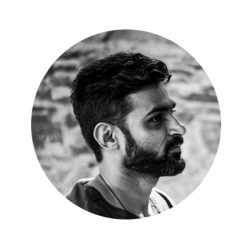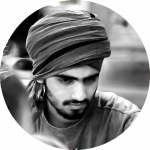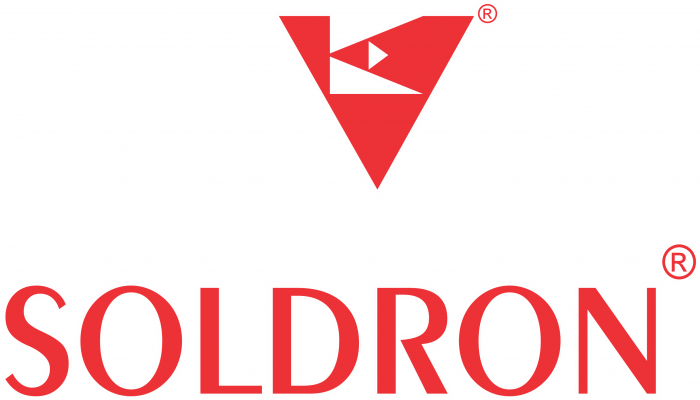FACADE DIGITISATION FOR SMART CITIES
(EDITION 1)

(EDITION 1)
The field of dynamic facades as sustainable building design element is in its infancy in the 21st century. However, the field is growing rapidly due to the requirement for better environmental performance of buildings, and the recent rise of computational tools as well as open programability of electronics for framework control. Dynamic facades have the potential to add to the architectural expression of a building by visualizing the changeable aspects of the environment. Since the building envelope , or facade, is in essence the public face of a building, and has therefore a large impact on the perception of the building, thus from an energetic perspective, a shape shifting envelope acts as an even more optimized buffer or mediator between the interior and the exterior environment.
The 1st edition of GSS India shall commence in India’s first planned city ‘Chandigarh’ designed by Master Architect Le Corbusier. The need of the hour in planned and well working cities like Chandigarh are development of modular and highly integrated but dynamic building facades to help optimize the city’s power needs for the built environment. Both the architectural expression as well as the behavior of the facade should be controllable with high spatio-temporal resolution through individually addressable modules.
Participants will be taught to follow a series of steps from basics designing for modular structure systems that physically respond to stimulus coming from dynamic and unpredictable environments and/or relative design criteria performances. Contrary to standard design processes where shape can be defined in advance, the final geometrical configuration of these flexible structures relies on the integration of programable electronics as the main agent driving the entire formation process.
In Corbusian words, “The sun must penetrate every dwelling several hours a day even during the season when sunlight is most scarce. Society will no longer tolerate a situation where entire families are cut off from the sun and thus doomed to declining health.” Le Corbusier wrote this in article 26 of the Athens Charter.
The IaaC GSS Chandigarh edition concluded successfully and all student works shall be uploaded shortly!
IAAC Global Summer School is a full-time two weeks course, 2-14 July 2018, that provides both practical and theoretical knowledge. The program is led by expert tutors, combined with lectures by renowned professionals and academics relevant to the topics to be treated during the course. These will be broadcasted in the different node-cities, all globally connected. Participants will join a global agenda and an international laboratory at their disposal to test their design hypothesis, understanding how design conclusions derived locally can be tested and evolved globally in the different cities where other teams reside. During the the GSS CDG, participants will take part exploring the integration of highly intuitive and interactive physical-based techniques within parametric and associative modelling environments and digital fabrication protocols. To make sure, students grasp the skills well from the basics the first year, focus shall be laid on participants rather than the end 1:1 scale product even though GSS Chandigarh’s goal is the fabrication of a 1:1 scale demonstrator that opens a discussion regarding role of adaptive shape shifting lightweight structures in our built environment. Introductory sessions are going to be organized for participants in topics ranging from parametric and associative modelling to prototyping and electronics. Students will acquire basic knowledge and understanding of flexible structures and dynamic methods for form-finding through theoretical and practical sessions. The core of the workshop is the understand and implement highly intuitive, responsive and interactive form-finding processes for the design of a final demonstrator which integrates controller shape shifting concepts showing results on illumination as well as user interaction. We shall be focusing on the following outcomes for participants to learn:
The workshop will include design and making with data visualization, robotics, working with hardware and programming arduino/sensors and digital fabrication integrated into computational design workflow to construct an interactive feature that is able to shape shift. The format of the workshop is team based participation leading to individuals acquiring design and execution skills, systems thinking and a detailed understanding of physical computing and interactive design thinking. The process will involve sensing human presence as the first and light as the second stimuli through Arduino prototyping platform and different kind of electronic devices as sensors and actuators. While developing Iot (internet of things) platforms, data collected through these sensors and open source database platforms, will be actuated into a shape shifting installation. The structure of the program consists of seminars, discourse groups and workshop that include material research, development of complex geometrical form, fabrication details and techniques, developing small scale prototypes and finally the fabrication of a 1:1 installation on site.

GSS2018 CHANDIGARH – organizer
Founder, Fab Lab Chandigarh, Fab Academy graduate from Fab Lab VA; Massachusetts Institute of Technology, Boston’s 1st Fab Lab.

GSS2018 CHANDIGARH – organizer
Partner, Zios Makerspace, Fab Academy graduate from Fab Lab VA, Massachusetts Institute of Technology, Boston’s 1st Fab Lab

GSS2018 CHANDIGARH – organizer
Partner, Noumena, Co-Founder-D3Lab, M.Arch, Institute for Advanced Architecture of Catalonia, and Fab Academy graduate from Fab Lab Barcelona.

GSS2018 CHANDIGARH – Coordinator
Product Design Engineer, University of Strathclyde. Fabrication intern@ Zios Makerspace and point of contact during workshop.

GSS2018 CHANDIGARH – Tutor

GSS2018 CHANDIGARH – Tutor
Partner, Roarbit Technologies, Electronics engineer, Expert in Analog and Digital Electronics Design and Interactive Media arts. Experienced in C,C++, C#,VB

GSS2018 CHANDIGARH – Coordinator
Product Design Engineer, University of Strathclyde. Design intern @ FabLab Chandigarh and point of contact during Workshop

India

India

India

Ethiopia
VENUE : Punjab Engineering College, Sector 12
CITY : Chandigarh (U.T.), India
IAAC GSS is open to creative and innovative people who are interested in fields such as architecture, urban planning, digital fabrication, design, etc., searching for a multidisciplinary experience in an international environment. No previous skills are required, although CAD design, programming and digital fabrication skills are welcome. The official language of the course is English.
After the course, the participants will have gained theoretical and applicative knowledge about advanced design strategies. They will be familiar with parametric software, data visualization and use of digital machines. The last day of course participants will join a presentation of developed projects reviewed by a renown jury and will receive a Global Summer School Diploma.
Each participant is responsible to investigate which documents are required via the embassies in their country of origin. The school will provide a confirmation letter regarding the participation to the course, and will assist where possible the visa process.
Fee in GSS Chandigarh is
649€ (Students) | 6 seat(s) booked, 6 seat(s) available
EARLY BIRD OFFER
500€ (Students) | 6 seat(s) booked, 0 seat(s) available
750€ (Professional)| 1 seat(s) booked, 5 seat(s) available
(Early Bird Offer ticketed on First Come First Serve)
Fee includes all material costs needed for the course. No additional registration fee is required. Flight tickets, accommodation and food are not included in the fee. Each participant should bring his/her own computer with the software installed. Further details about the software will be given to the participants upon acceptance.
In order to register to the Global Summer School, participants need to submit the online application form, where they will be asked to fill their personal details. Portfolio is not mandatory. GSS18 dates are from 2-14 of July 2018. Application Deadline has been extended till 29th of June, 2018
APPLICATIONS FOR GSS CHANDIGARH 2018 are now closed !

